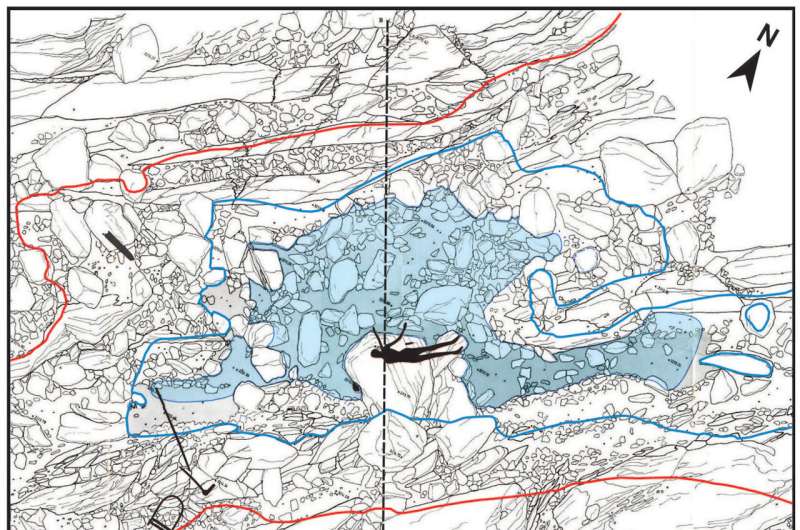November 9, 2022 report
New study of 脰tzi the Iceman suggests his preservation story was not a series of miracles

Bob Yirka
news contributor

A small team of researchers affiliated with institutions in Norway, Sweden and Austria, has found evidence that suggests a flaw in the original story of how 脰tzi (the Iceman) remained preserved for so long. In their paper published in the journal The Holocene, the group details what they describe as a more plausible explanation.
In 1991, a couple of German hikers came upon the remains of a man frozen in the ice in the 脰tztal Alps. Testing of the remains showed the man to be from approximately 5,300 years ago. Researchers also found wounds that suggested the man had been killed. Konrad Spindler, an Austrian archaeologist, published a theory to explain how 脰tzi's remains had managed to survive for so long.
He suggested the body had freeze dried and was then encased in ice beneath a glacier (and was protected from its movement by a gully), where he was preserved in cold storage for thousands of years. His remains were found only because of warming caused by climate change melting the ice in which he had been frozen. Such a sequence of events meant that 脰tzi's experience was unique, and thus it was doubtful that others like him would ever be found.
In this new effort, the researchers disagree with almost every part of Spindler's theory. The only part they believe to be true is the cause of death. They suggest instead that food in 脰tzi's belly demonstrates that he died in the spring, not the fall. Also, study of the landscape showed that the remains had not been covered by a glacier, which suggests 脰tzi had melted out of the ice many times; thus, there was no time capsule. There was also evidence that 脰tzi had been immersed in water several times.
And that, the researchers suggest, indicates that 脰tzi's weapons and tools had been damaged by the elements, not by a struggle with an unknown foe. And finally, the researchers also found evidence suggesting that 脰tzi had not died where he was found in the gully鈥攊nstead, he had been transported down the mountain by natural environmental processes.
The researchers conclude that since their evidence shows that 脰tzi's remains had survived for so long due to common conditions, it is likely that others like him will be found as conditions in the area continue to grow warmer.
Written for you by our author 鈥攖his article is the result of careful human work. We rely on readers like you to keep independent science journalism alive. If this reporting matters to you, please consider a (especially monthly). You'll get an ad-free account as a thank-you.
More information: Lars Pil酶 et al, 脰tzi, 30 years on: A reappraisal of the depositional and post-depositional history of the find, The Holocene (2022).
漏 2022 Science X Network





















